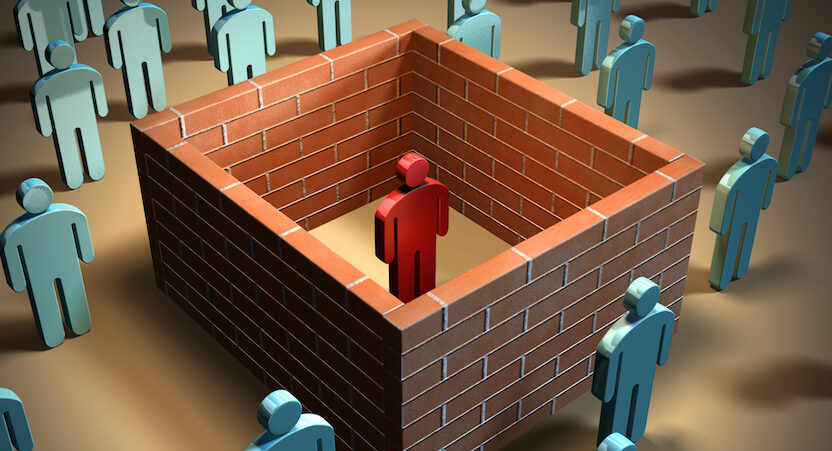Are you struggling to achieve your personal or professional goals despite countless efforts? In today’s ever-changing world of self-improvement, hidden mental barriers often sabotage our ambitions without us even noticing. This article dives deep into the psychological traps that keep you stuck, detailing seven common yet overlooked obstacles that prevent your goal attainment. By exploring these internal barriers through modern personal development techniques, you’ll learn how to identify, understand, and overcome them. Get ready to embark on a journey of self-discovery and growth, where you’ll learn not only what these barriers are, but also how to break through them to unlock a more successful future.
1. Unmasking the Mental Blocks

Mental barriers are like invisible walls that limit our ambitions. They often disguise themselves behind rational excuses, leading us to believe that our obstacles are external rather than internally generated. Recognizing these hidden mental blocks is essential, as they are often the main reason behind unachieved goals. Acknowledging their existence is the crucial first step to overcoming them.
In the realm of personal development, understanding the intricate pathways of your mind is key. These barriers may stem from long-standing habits or subconscious narratives formed during your early years. They are more deceptive than overt fears, camouflaging themselves as practical excuses for inaction. For example, saying there is ‘not enough time’ often masks the mind’s way of avoiding the discomfort of potential failure.
When you begin to see these mental blocks clearly, you empower yourself to dismantle them. This internal liberation sparks a cascade of positive changes—boosting creativity, productivity, and confidence. Embracing self-awareness is the gateway to a more resilient and proactive approach to life’s challenges.
2. Fear of Failure and Its Paralysis
One of the most powerful mental barriers is the fear of failure. This fear can be so paralyzing that it stops you from taking even the smallest step toward your goals. Often, the fear of failure convinces us that risking the unknown is simply not worth it, trapping us in a cycle of inaction.
This deep-seated anxiety frequently originates from childhood experiences or societal messages that equate failure with worthlessness. Research consistently shows that those who learn to embrace risk and see failure as a part of the learning process are more likely to innovate and succeed. This mindset shift can transform fear into a powerful motivator.
By reframing failure as an essential component of growth, you can begin to view setbacks as valuable learning experiences. Celebrating these lessons, rather than avoiding them, is key. Many successful entrepreneurs attribute their greatest breakthroughs to the lessons learned from their failures, proving that sometimes, the risk is indeed worth the reward.

3. The Procrastination Trap
Procrastination is a significant roadblock on the journey to achieving your goals. It’s not merely a symptom of poor time management but a reflection of underlying anxieties and self-doubt. The habit of delaying tasks is often a strategy to avoid facing the possibility of failure.
Studies in personal development reveal that procrastination is closely linked to perfectionism and the fear of making wrong decisions. This delay tactic serves as a temporary escape from the discomfort of criticism, yet creates a vicious cycle of missed opportunities and escalating self-criticism over time.
To overcome procrastination, it is important to address its root causes. Breaking tasks into manageable pieces and setting clear, achievable goals can help disrupt the cycle. Techniques such as time-blocking and using the Pomodoro Technique have proven to be effective for many. Remember, each small action you take moves you closer to your ultimate goal.
4. The Perfectionism Paradox
At first, perfectionism might seem like a positive trait, but for many, it turns into a crippling double-edged sword. Perfectionism sets unrealistic standards that fuel chronic self-criticism and dissatisfaction. The unyielding desire for flawlessness can lead to a paralysis of action, preventing you from completing tasks or moving forward.
Those who struggle with perfectionism often find themselves spending too much time refining minute details and delaying important decisions. This paradox means that in the pursuit of perfection, progress is stalled, leaving you stuck in a loop of self-doubt and inaction.

One practical strategy to counter perfectionism is to embrace the concept of ‘good enough.’ By accepting that perfection is an elusive ideal, you allow yourself the freedom to progress and learn from each step. Celebrating small victories and incremental improvements is crucial on your journey toward self-improvement.
5. Negative Self-Talk and Limiting Beliefs
Negative self-talk is a formidable barrier that undermines your success before you even begin. Phrases like ‘I’m not good enough’ or ‘I don’t deserve success’ create a self-limiting narrative that hinders progress. Over time, these negative beliefs become so ingrained that they feel like absolute truths.
Research in cognitive behavioral therapy shows that transforming negative self-talk into positive affirmations can have profound benefits for mental health and performance. By consciously reshaping your internal dialogue, you begin to reprogram your mind to support rather than sabotage your goals.
Incorporating practices such as journaling, mindfulness, and seeking professional guidance can help break the cycle of negative self-talk. These strategies encourage self-compassion, enabling you to challenge and ultimately overcome limiting beliefs. Constant nurturing of self-belief is a cornerstone of effective personal development.

6. The Comfort Zone Conundrum
While the comfort zone provides a sense of security, lingering in it for too long can hinder your growth and development. The desire to maintain familiar routines often stops you from exploring new opportunities, thereby limiting your potential.
Think of the comfort zone as an invisible cage—a safe haven that, paradoxically, prevents you from experiencing the exhilaration that accompanies personal growth. Research in personal development shows that true progress occurs when you challenge yourself and step outside your defined boundaries.
Breaking free from the comfort zone begins with setting small, deliberate challenges that push you beyond your limits. Whether it’s learning a new skill, meeting different people, or tackling unfamiliar projects, every new experience builds resilience and reduces the fear of the unknown. Gradually, you’ll replace hesitation with a sense of adventure and possibility.

7. Lack of Clarity and Direction
A common yet overlooked barrier to success is the absence of clear, defined goals. Without specific objectives, you may find yourself wading through uncertainty, which can sap motivation and dilute your focus.
Clarity serves as a compass on your personal development journey. When you have a well-defined vision, every step you take is aligned with your ultimate goals. In contrast, vague ambitions tend to lead to procrastination and a continual cycle of self-doubt.
To overcome this barrier, visualize your goals and set measurable milestones using methods like vision boards, SMART goal planning, or regular self-reflection sessions. A clear roadmap not only fuels motivation but also provides the direction necessary to transform ambiguity into confidence and success.
Content Additional
For those eager to explore more advanced personal development strategies, our additional content delves into practical methods for dismantling unconscious barriers. Meditation and mindfulness exercises are powerful tools that help you recognize and replace self-defeating thoughts with empowering ones. Regular practice can cultivate mental resilience and foster a more positive internal dialogue.
Engaging with supportive communities or professional mentors is another effective strategy. Online forums, personal development podcasts, and self-help groups provide a wealth of ideas and accountability. Studies show that social support not only inspires you but also reinforces your determination to overcome mental hurdles.
Embracing lifelong learning is essential to break free from limiting mental routines. Whether through reading, workshops, or online courses, continuously expanding your knowledge opens new neural pathways and innovative ways of thinking. Curiosity and consistent self-improvement can transform challenges into opportunities.
Finally, maintaining a daily journal can be a transformative practice. Document your progress, reflections, and breakthroughs to identify patterns and recognize growth. This habit not only motivates you but also serves as a tangible record of your journey toward overcoming mental barriers and achieving your goals.
In conclusion, overcoming these seven hidden mental barriers requires self-awareness, practical strategies, and a commitment to change. Recognizing and understanding your own self-sabotage—from the fear of failure to the reluctance to leave your comfort zone—allows you to reframe your mindset and adopt a forward-thinking, resilient attitude. Remember, personal development is a continuous journey where every small breakthrough matters. Embrace transformative thinking and take confident steps toward a life where your goals evolve from dreams into tangible achievements. The journey to change starts with the simple decision to believe that it’s possible.




